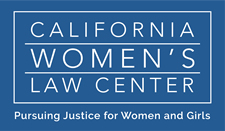FOR IMMEDIATE RELEASE: September 24, 2020
MEDIA CONTACTS: Dinah.Stephens@cwlc.org / Jeagle@equalrights.org / tevangelis@gibsondunn.com
The California Supreme Court granted review in Boermeester v. Carry, a case involving the expulsion of a University of Southern California student for intimate partner violence. This is the first domestic violence case involving a student in California to make it to the Supreme Court, which is a major victory for survivors of sexual and domestic violence.
The petition for review was filed on behalf of the University of Southern California. The California Women’s Law Center and Equal Rights Advocates, represented by Gibson, Dunn & Crutcher LLP, provided amicus support urging the Supreme Court to grant the petition and review the divided Court of Appeal decision. The Court of Appeal had ruled that the petitioner (the alleged aggressor) was denied “a meaningful opportunity to cross-examine critical witnesses at an in-person hearing.” But, as the dissent points out, this kind of special treatment allows the aggressor to emerge as the victim and unfairly punishes the survivor.
The appellate decision was the most recent in a string of decisions from the Court of Appeal which have incrementally imposed additional, onerous requirements in university disciplinary proceedings regarding sexual misconduct and gender-based violence that are not required in any other type of school disciplinary proceedings.
As the amicus letter explains, this disparate treatment creates “a two-track system—separate and unequal—which requires an opportunity to cross-examine parties and witnesses only in gender-based
disciplinary proceedings, and continues to perpetuate the false adage that women who report their assault, abuse, or rape are lying.”
Intimate partner violence, sexual assault, and other forms of gender-based abuse and discrimination have lifelong impacts on survivors. Already, only 20% of survivors report gender-based violence, and a procedural system that allows perpetrators to aggressively cross-examine victims in public settings will only further deter reporting.
In a rare occurrence, the California Supreme Court granted review of this case and also depublished the Court of Appeal’s opinion. The dual wins of review and depublication happen only occasionally, making this success especially important to advocates for women’s rights.
##
____________________________________________________________________________
For over 30 years, the California Women’s Law Center (CWLC) has been a champion in the pursuit of justice for women and girls. CWLC works to break down the barriers and advances the potential of women and girls in California through transformative litigation, policy advocacy, and education. Since 1989, CWLC has advocated for and achieved policy change on a wide range of issues affecting gender discrimination and equality, Title IX enforcement, women’s health and reproductive justice, economic security, and violence against women.
____________________________________________________________________________
Equal Rights Advocates is a national civil rights organization dedicated to protecting and expanding economic and educational access and opportunities for women and girls since 1974.
